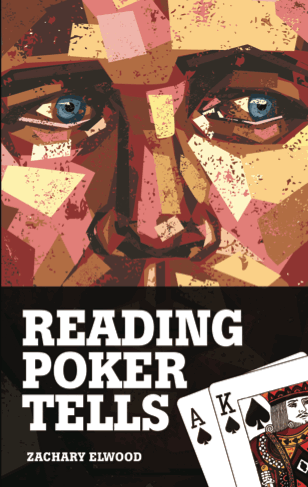Reading Poker Tells – Excerpt
Excerpt from Reading Poker Tells, Verbal Tells chapter. There is a competition in our forum where you can win one of 8 copies of this book. The book is availble on Amazon UK.
Liars and Truth-Tellers
Players will sometimes mislead you, but will seldom blatantly lie. They will tell you the truth more often than you think.
Some people think that all poker players are liars. All poker players sometimes lie; that’s definitely true. But in my experience, most players don’t often lie during a hand. They may misrepresent their hands, or mislead you, es pecially after the hand is over, but they will seldom tell an outright lie while a hand is going on.
Mark McClish, a federal law enforcement officer, wrote a book called I Know You Are Lying. In it, he argued that people will go out of their way to not tell a lie, even when telling a lie would seem to be very easy to accomplish and very beneficial to them. His main point was that it goes against people’s nature to lie; it makes most people, even some killers, uncomfortable.
I agree with McClish that there’s an instinctual, physiological discomfort most people have when they lie.
I believe that as long as there’s a potential for a lie to be found out, most people avoid lying. But in spots where people know for certain that there’s no way their lie can be discovered, they’ll feel more comfortable lying. What this means in poker is that people in the middle of a hand are less likely to commit a bald-faced lie, because their hand still could be exposed, whereas people who know their hands will never be seen (like when they are plan ning on mucking or have already mucked) are more ca pable of lying.
Verbal trickery
But even if people might avoid lying, many people love to verbally and ambiguously mislead. Ways of misleading, but not directly lying, are saying things like:
- “I’ve got a good hand.”
- “I’ve got it.”
- “You should let this one go.”
- “I’ve got a pair of queens” (when their pocket queens makes a set).
A player who successfully misleads opponents accom plishes several things:
- He gets his opponents to act contrary to their best interests
- He avoids the discomfort of lying
- He avoids being perceived as a liar
Jamie Gold is a perfect example of a player who very much enjoys misleading opponents. He seldom out-and-out lied during his talkative performance at the 2006 WSOP (or on his television appearances since). Rather, he used ambiguous and misleading talk to try to achieve his goals.
Take as a case in point a hand from the no-limit cash game show Poker After Dark where Jamie Gold success fully misled Alan “Boston” Dvorkis. Alan was pretty short-stacked and raised with QT. Jamie looked down at pocket kings and raised Alan all-in. Jamie kept insisting to Alan that all he (Jamie) had was King high. Gold got more specific and twice said that he didn’t have KQ. He even showed another player his cards and asked him if he had KQ; the other player said, honestly, “nope”. Then Alan said that he was getting the right price to call if Gold had AK; Gold said “I said I have King high; I don’t have Ace-King.”
These statements led Alan to eventually call, thinking that if Jamie had KJ or weaker then Alan was getting ac ceptable odds. When Alan called, Jamie flipped over his Kings with the sheepish announcement, “The highest card in my hand is a King.”
Needless to say, Boston wasn’t pleased with this. But Jamie Gold could successively counter any accusations of being extremely under-handed with the argument that he had technically been telling the truth.
When a player tells you, “I’ve got King high,” or any thing that makes his hand seem vulnerable, your wheels should start spinning as to why he’d tell you this. It would seem like a really mean-spirited thing for Gold to straight-out lie in that spot. For one thing, they were on television, in a “friendly” game of “equals”. For another, Gold has his reputation as a “world champion” to consider. For both of these reasons, I would consider a bald-faced lie unlikely.
At the same time, Gold is not the type of player to straight-out tell you his vulnerability in that spot. Virtu ally nobody would tell you they were vulnerable in such a spot.
Keeping these two things in mind; the fact that Gold is most probably not technically lying about having King-high, and the fact that he is most probably strong and not weak, a pair of Kings could be logically deduced.
I think this story is a good example of the kind of de ductive logic you can sometimes use to analyze a player’s statements. I’ve been in many spots similar to this where a player has said something about his hand, trying to be tricky, but instead he ends up telling me exactly what he has.
I think this story also gives you a good idea of the kinds of thoughts that go through a verbally tricky player’s mind; they want to trick you, but they don’t want to have to lie to your face to do it. They want to get the thrill of being a liar or a cheat without actually being one.

